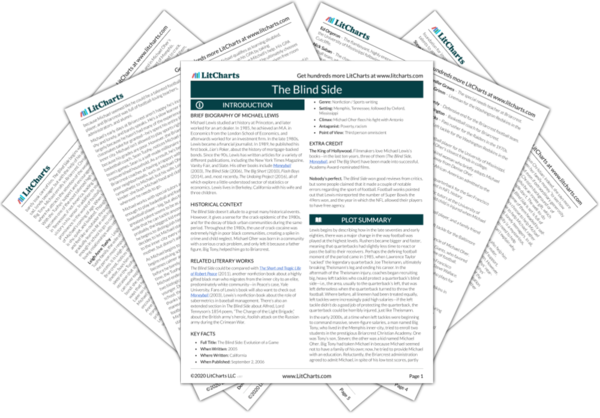AI ToolsNew
Tools to make learning and teaching easier
|
Previous
Chapter 10
|
The Blind Side: Chapter 11 Summary & Analysis |
Next
Chapter 12
|


Upgrade to unlock the analysis and theme tracking for all of The Blind SideThe Blind Side!
Get LitCharts A+